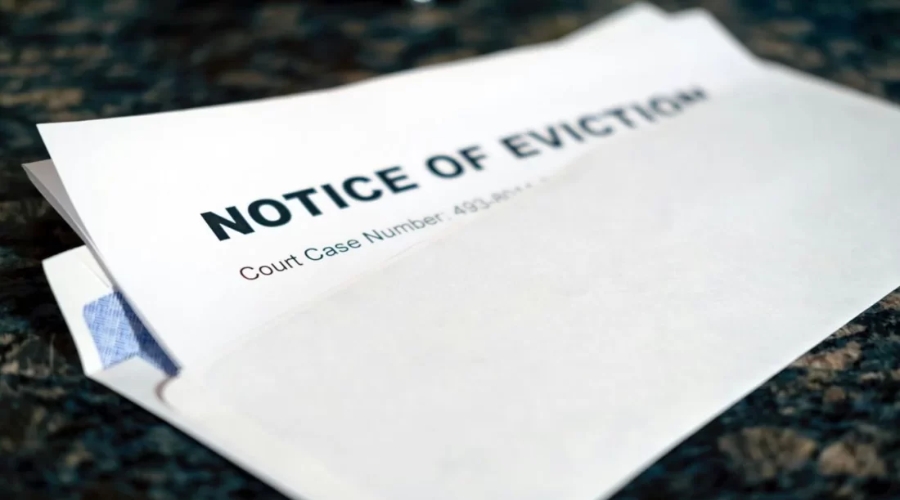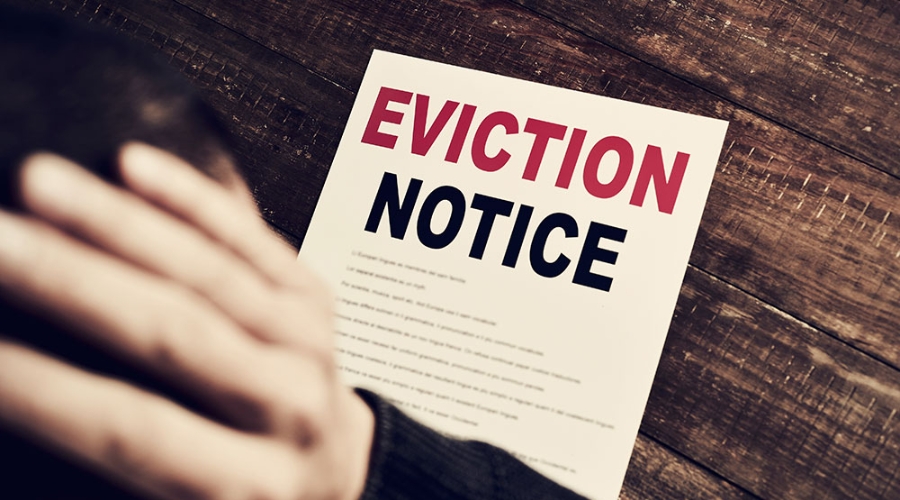If you're a landlord dealing with difficult tenants, understanding the eviction process in Pennsylvania is crucial to protect your rental property and avoid legal missteps. From delivering proper notice to regaining possession through the courts, each step requires careful attention to state laws.
In this guide, LeaseRunner breaks down the timelines, costs, and essential procedures you need to know—so you can handle evictions efficiently and lawfully, without unnecessary stress or delays.
Seal Eviction Records: Key Updates to Pennsylvania Eviction Laws (2025)
Pennsylvania’s 2025 reform introduces major changes to how eviction filings are handled, especially regarding tenant privacy and public access. Let’s break down what the new Pennsylvania law covers, who it protects, and how it reshapes the eviction process in Pennsylvania for both landlords and renters.
Key Provisions of The New Law
This legislation - House Bill 1095— amends Title 42 of Pennsylvania law to introduce limited public access to eviction records. It provides that eviction filings where the tenant prevailed, cases dismissed, or withdrawn are not permanently visible.
For instances where a judge ruled the tenant at fault, the report remains publicly accessible, but only for seven years, aligning with bankruptcy and foreclosure sealing standards. Cases decided in favor of tenants, withdrawn by the landlord, or no-lockout outcomes are automatically sealed after seven years without tenant action required.
Eligibility & Process
- Eviction cases that qualify for sealing include those where::
- the tenant wins,
- files are dismissed or voluntarily dropped, or
- no lockout occurs.
- Automatic sealing timeline: Eviction filings are removed from public dockets 7 years after the initial filing date, regardless of tenant involvement.
- Fault‑based rule: If a court finds the tenant at fault, that record remains publicly searchable for seven years before being sealed.
- No action needed by tenant: The system operates via the Administrative Office of Pennsylvania Courts, which handles record processing automatically.
Impact on Landlords & Tenants
For tenants, especially those with past financial challenges or facing eviction processes in Pennsylvania, this reform opens access to housing by reducing reliance on old filings that unfairly burden applicant screening. Under the current system, any eviction record—even dismissed ones—can halt housing opportunities indefinitely.
With the new framework, renters receive a second chance at stable rentals without tenant screening systems penalizing them for resolved or no‑fault cases.
Landlords and property managers still have access to recent or fault-determined history, giving them necessary screening tools for the first seven years. Performing a thorough eviction check during tenant screening remains critical, especially before the seven-year seal applies, to assess any potential risks.
This shift is intended to mitigate the cascading consequences of eviction filings—job loss, family instability, or forced unsafe housing options—thereby improving overall housing stability across Pennsylvania communities.

Legal Reasons to Evict a Tenant in Pennsylvania
Understanding the legal grounds for eviction helps landlords follow proper legal procedures while avoiding costly legal missteps. While eviction rules vary under different laws in the U.S., Pennsylvania law outlines several valid reasons that allow landlords to begin the eviction process in Pennsylvania, each with specific notice requirements and conditions.
Unpaid Rent On Time
The most common basis for initiating the eviction process is the tenant’s failure to pay rent. In this state, rent is considered overdue immediately after the due date—unless the lease states otherwise.
Landlords must issue a 10-Day Notice to Quit, allowing the tenant ten days to either settle the balance or move out. If the tenant remains in the unit without paying, the landlord can move forward with filing a formal eviction complaint in court.
This step is critical for landlords who depend on rental income and want to remain compliant with tenant rights laws. Terms should always be documented in the rental agreement to prevent misunderstandings.
Lease Or Rental Agreement Violations
Violations of a written lease—such as unauthorized occupants, causing property damage, or repeated disturbances—also justify eviction. Pennsylvania law distinguishes notice periods based on the tenant’s length of stay:
- A 15-Day Notice to Quit applies if the tenant has lived in the property for less than one year.
- A 30-Day Notice to Quit applies for tenants with over one year of residency.
If the lease explicitly outlines certain conditions, such as quiet hours or pet restrictions, breaching those terms can initiate this eviction process.
Lease Non-Renewal After Rental Period Ends
When a lease expires and the landlord chooses not to renew, the tenant must vacate the property by the end of the term. If the tenant stays without consent, landlords can serve:
- A 15-Day Notice for those residing less than one year.
- A 30-Day Notice for those residing more than one year.
While Pennsylvania does not permit eviction without cause during a lease, once the agreement ends, a landlord is under no obligation to renew. If the tenant overstays, legal action may proceed, making this a common part of the eviction process in Pennsylvania for month-to-month or expired lease situations.
Criminal or Dangerous Conduct
Engaging in illegal activity on the premises is another enforceable reason to evict a tenant. Under Pennsylvania law, any of the following can trigger a 10-Day Notice to Quit:
- Violations of the Controlled Substances Act (especially repeat offenses).
- Possession or manufacturing of illegal drugs within the rental unit.
- Use of the property for dangerous or unlawful purposes.
In cases involving domestic violence, landlords should be cautious and aware of local protections offered to victims. Some jurisdictions may provide relocation rights or protections from retaliation if the victim is not the aggressor.
These serious breaches not only violate lease terms but also pose safety risks to other tenants and neighbors. Landlords must document these issues carefully to support their case in court.
Squatter Removal
Pennsylvania law provides remedies for landlords dealing with unauthorized occupants or squatters.
If someone occupies a rental unit without a valid lease or refuses to leave, the property owner can initiate legal ejectment through the court system. It’s also important to be aware of squatter rights, which in some rare scenarios may grant unauthorized occupants limited legal protections if specific conditions are met.
It’s crucial to avoid self-help methods such as changing locks or removing belongings, as these are illegal and can result in penalties for the landlord. Instead, following proper legal channels ensures a successful resolution.

How To Serve an Eviction Notice in Pennsylvania
Serving an eviction notice in Pennsylvania requires more than just delivering a document; it must follow strict legal steps. Let’s break down what landlords need to do to serve the notice correctly and lawfully.
Pick the Right Type of Notice
Before starting the eviction process in Pennsylvania, landlords must choose the correct notice based on the lease violation. For nonpayment of rent, a 10-day notice to quit is typically required.
If the eviction is due to a lease breach or the end of a term lease, landlords must issue a 15- or 30-day notice, depending on how long the tenant has lived on the property. Picking the right notice type ensures the legal process starts on solid ground and avoids unnecessary delays.
Include Required Details
To make the notice valid, it must clearly outline essential information. That includes the tenant’s name, the property address, the reason for eviction, and the deadline to move out.
If the notice lacks these elements, it can be challenged in court, slowing down the Pennsylvania eviction timeline. Including accurate details helps clarify expectations and reduces legal pushback.
Serve the Notice Legally
Landlords can serve the eviction notice through personal delivery, by leaving it at the residence, or via first-class mail. Pennsylvania law does not allow electronic delivery for eviction notices.
It’s important to document how and when the notice was delivered, in case it becomes part of the court record. Following these rules ensures the eviction procedure in Pennsylvania remains compliant from the beginning.
Never Use Self-Help Eviction
Even if a tenant refuses to leave, landlords are prohibited from taking matters into their own hands. Changing locks, removing belongings, or shutting off utilities without a court order is considered illegal in Pennsylvania.
These actions can result in lawsuits or fines. The eviction process in Pennsylvania must go through the courts. Only a sheriff or constable may remove a tenant after a judgment has been entered.
Step-by-Step Eviction Process in Pennsylvania
Navigating the eviction process in Pennsylvania involves a series of legal steps that must be followed carefully. Let’s break down each stage, starting with how to properly notify the tenant.
Step 1 – Serve the Proper Notice
To begin the eviction process in Pennsylvania, landlords must issue the correct written notice based on the reason for removal and the tenant's lease situation. The required notice periods are:
- 10-Day Notice to Quit: For unpaid rent or unlawful conduct.
- 15-Day Notice to Quit: Applies when the tenant has lived in the rental unit for less than 12 months and violated the lease or is being asked to leave after expiration.
- 30-Day Notice to Quit: Used for tenants who have resided at the property for over a year and are being evicted for similar causes.
The notice must outline the cause, the timeframe for correction or move-out, and be delivered directly to the tenant or sent by certified mail with a return receipt. If the issue is resolved within the notice period, the matter ends here. Otherwise, the landlord may escalate the eviction process in Pennsylvania by initiating court action.
Step 2 – File a Complaint
If the tenant doesn’t comply with the notice, the landlord can proceed to file a formal complaint with the local Magisterial District Court. In Pennsylvania, this legal action may be categorized as an unlawful detainer, requesting the court to regain possession of the rental unit. A hearing is typically scheduled within 7 to 10 days.
- A completed complaint form outlining the lease violation or grounds for removal.
- Proof of non-payment or breach.
- Applicable court filing fees.
Once submitted, the court will prepare to notify the tenant of the hearing date.
Step 3 – Let the Court Serve the Tenant
After filing, the court issues a summons to inform the tenant of the scheduled hearing. A sheriff, constable, or a certified process server carry out delivery of the summons. Proper service is a critical part of the eviction process, and failure to notify the tenant appropriately may result in dismissal or delay.
Step 4 – Prepare for the Court Hearing
At the hearing, both parties present their case. Landlords should bring detailed documentation, such as:
- A signed lease agreement.
- Records of rent payments or missed payments.
- Copies of the eviction notice and proof of delivery.
- Any communication with the tenant regarding the issue.
Tenants can also defend themselves, raise concerns about tenant rights, or claim procedural errors. The judge then decides based on the evidence.
Step 5 – Judgment and Writ of Restitution
If the judge rules in the landlord's favor, the court issues a judgment for possession. The tenant is typically given 10 days to vacate or appeal the ruling. If they remain in the unit after this window, the landlord can request a Writ of Restitution, which authorizes the sheriff to carry out the eviction.
Step 6 – Sheriff Carries Out the Eviction
The final stage in the eviction process in Pennsylvania involves the sheriff executing the Writ of Restitution. This legal document grants the sheriff authority to physically remove the tenant from the property if they have not vacated voluntarily.
Once the eviction is completed, possession is legally returned to the landlord, and the case is considered closed.

Pennsylvania Eviction Timeline and Costs
Understanding the eviction process in Pennsylvania requires landlords to be aware of both the expected timeline and the financial responsibilities that come with it. Being informed early helps avoid missteps, ensures compliance with state procedures, and ultimately protects rental property investments.
Estimated Timeline for Each Eviction Stage
Below is a breakdown of the typical timeline landlords can expect for each stage of the eviction process. While durations may vary slightly by case, this estimate offers a general overview.
Breakdown of Typical Eviction Costs in Pennsylvania
Evicting a tenant in Pennsylvania comes with several expenses that landlords should plan for in advance. Below is a breakdown of the typical eviction-related costs you might encounter in 2025.
Altogether, completing the eviction process may cost landlords between $1,000 to $2,000, depending on case complexity. Ensuring each step is followed precisely — from issuing a notice to vacate to obtaining a writ of possession — is key to minimizing financial risk.
5 Documents Pennsylvania Landlords Should Keep on File
Proper documentation is essential for navigating the eviction process in Pennsylvania. Landlords who maintain thorough and organized records are more likely to succeed in court and avoid costly delays. The following five types of documents serve as key evidence in legal proceedings and ensure compliance with state law.
1. Signed lease
A lease sets the legal foundation of the rental relationship. Without it, your ability to prove terms in court is limited.
- Must include both landlord and tenant signatures with clear start/end dates.
- Specifies rent amount, due dates, late fees, and rules for use of the property.
- Serves as primary evidence if the tenant violates any terms, such as subletting without permission or damaging the unit.
- Required in court when initiating the eviction process, especially for breach of contract claims.
2. Rent records
Non-payment of rent is one of the most common reasons landlords file for eviction. But you’ll need documentation to support the claim.
- Maintain a detailed ledger showing each rent payment made (or missed) by the tenant.
- Include copies of canceled checks, money order receipts, bank transfers, or accounting software reports.
- Note any late fees assessed or rent reductions due to maintenance issues.
- These records support your position in court during the eviction process and show that rent was lawfully demanded and unpaid.
- Keep a record of the tenant’s security deposit and any deductions made, as this may become part of the dispute or evidence during or after eviction proceedings.
3. Proof of notices
Before filing for eviction, Pennsylvania law requires landlords to serve proper notice to tenants.
- Types of notices to retain:
- Notice to Quit for non-payment or lease violations.
- Notice to Terminate for end-of-lease evictions.
- Include copies of notices with clear delivery dates and methods (e.g., personal delivery, certified mail, or posting on the door).
- Keep receipts, tracking numbers, or signed acknowledgments proving notice was delivered following state rules.
- Judges may dismiss your case if there’s no proof that the tenant was properly notified before beginning the eviction process in Pennsylvania.
4. Photo/video evidence
Visual documentation strengthens your case, especially for evictions based on damage or lease violations.
- Take high-resolution photos or videos showing:
- Property damage beyond normal wear and tear.
- Unauthorized occupants or pets.
- Health or safety violations caused by tenant actions.
- Time-stamp all media and document when and how the images were captured.
- Use before-and-after comparisons if available (e.g., move-in vs. current condition).
- This evidence is highly persuasive during eviction hearings in Pennsylvania eviction court.
5. Communication logs
Having a detailed record of landlord-tenant communication can protect against false claims and demonstrate reasonable attempts to resolve conflicts.
- Keep dated records of:
- Email exchanges or text messages discussing rent, repairs, or complaints.
- Phone call notes, including date/time and summary of conversation.
- Formal letters or notices are sent and received.
- Logs help establish a timeline of events and prove the tenant was informed of issues or given warnings before eviction.
- Courts may view good-faith communication as a sign that the landlord tried to avoid the eviction process in Pennsylvania unnecessarily.
Smart Tips to Avoid Eviction Mistakes For Pennsylvania Landlords
Navigating the eviction process in Pennsylvania can be overwhelming, especially for first-time landlords. A single misstep could delay proceedings or even result in a dismissal. To stay compliant and protect your property, consider these essential tips:

Always Follow Proper Notice Requirements
Before filing an eviction case, ensure you’ve delivered the correct notice type and timeframe according to the lease violation. For instance, Pennsylvania law typically requires a 10-day notice for nonpayment of rent, unless the lease states otherwise. Skipping this step or using an incorrect form can invalidate the entire process.
Document Everything Thoroughly
Strong evidence is your best defense in court. Keep records of rent payment history, communication with the tenant, and copies of any prior notices served. If applicable, gather proof of lease violations through dated photographs, videos, or witness statements. These documents are crucial to justify your claim during the legal eviction process.
Avoid “Self-Help” Evictions at All Costs
Locking out tenants, shutting off utilities, or removing their belongings without a court order is illegal in Pennsylvania. These actions can lead to lawsuits, fines, and even the reversal of the eviction. Always let the court and local authorities handle possession, particularly once a Writ of Possession is issued.
Attend the Eviction Hearing Prepared
Your presence in court is more than a formality. Bring your lease agreement, evidence of the tenant’s breach, and any relevant communication. Be ready to answer the judge’s questions clearly. A well-prepared landlord improves their chances of securing a favorable judgment and moving forward with the eviction process in Pennsylvania.
Understand and Respect Tenant Rights
Even when tenants are at fault, they are still protected under state law. Know their rights regarding notice, hearings, and appeals. This helps avoid claims of discrimination or unlawful eviction and ensures your case proceeds smoothly through the court procedures.
Conclusion
Navigating the eviction process in Pennsylvania can feel overwhelming, but understanding the steps, timelines, and costs involved puts landlords in a stronger legal position. Staying organized, following proper notice procedures, and keeping thorough documentation can help avoid delays and reduce expenses. Whether you're a first-time landlord or managing multiple units, knowing what to expect is essential for protecting your rights and your property.
Just as important, landlords must also understand Tenant Protections to ensure compliance and avoid legal setbacks during the eviction process. For more guidance, explore our state-specific landlord resources.
FAQs
What is the process for evicting a tenant in Pennsylvania?
The eviction process in Pennsylvania involves several legal steps. First, the landlord must issue a written notice based on the reason (e.g., nonpayment or lease violation). Then, the landlord files a complaint with the Magisterial District Court.
After the hearing, if the court rules in favor of the landlord, a judgment is issued. The tenant has 10 days to appeal or vacate. If they don't leave, the landlord can request an Order of Possession, enforced by a constable. The full process may take 4–6 weeks, depending on court schedules and tenant response.
Can a landlord evict a tenant in 10 days in Pennsylvania?
Yes, tenants have the right to challenge the eviction in court. Common defenses include improper notice, failure by the landlord to maintain the property, or claims of discrimination or retaliation. Tenants can appear in court and present a defense.
Common defenses include: the landlord didn’t follow notice requirements, there was no lease violation, or the landlord failed to maintain the property. Many tenants also seek support from legal aid organizations, which offer free or low-cost assistance for those who qualify, especially in cases of wrongful eviction or housing discrimination.
Do landlords need a reason to evict someone in Pennsylvania?
Yes, landlords in Pennsylvania must have a valid legal reason to begin the eviction process. Common grounds include nonpayment of rent, lease violations, or expiration of a lease without renewal.
However, for tenants on a month-to-month agreement or those without a written lease, a landlord can issue a 30-day or 15-day notice, depending on how long the tenant has lived in the unit. In every case, landlords must follow formal notice and filing procedures before removal is legal.



